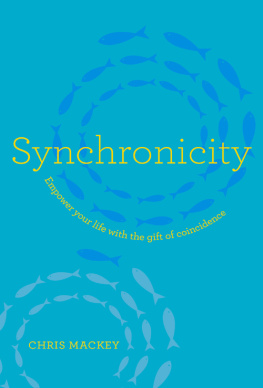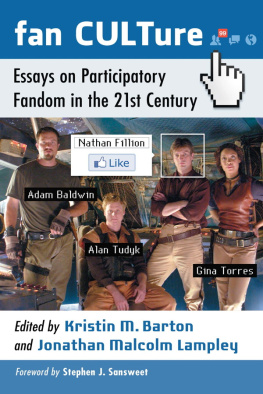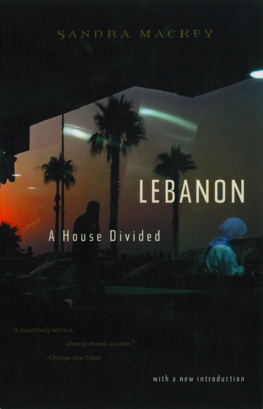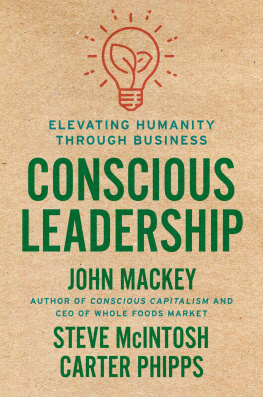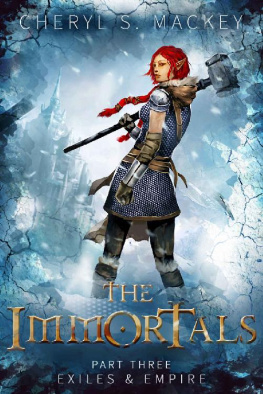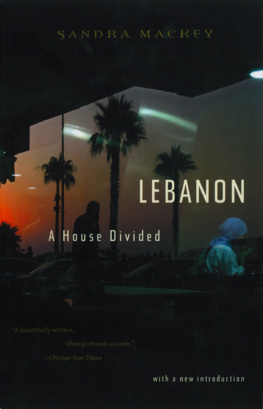Praise for
RANDOM ACTS OF CULTURE
Clarke Mackey moves with panache from personal perspective into a bold interdisciplinary account of why art is the way it is in our present-day society, and how it couldand why it shouldbe otherwise.
RUTH HOWARD, Artistic Director, Jumblies Theatre, Toronto
This is a pioneering book. Contemporary societies lack, and badly need, an understanding of that part of culture that people make for themselves. Clarke Mackey brings this often invisible realm and its history into clear view. His book will help everyone who wants to think about the future of culture.
DAVID CAYLEY, producer of CBC Radios Ideas and author of TheRivers North of the Future: The Testament of Ivan Illich
Clarke Mackey invites us to rediscover the artist we all carry within our adult, consumerist, alienated selves.
GUSTAVO ESTEVA, Zapatista advisor, negotiator, and visionary, and author of Grassroots Post-Modernism
About the author
Clarke Mackey teaches in the Department of Film and Media at Queens University, Canada. His feature films, television shows, and documentaries on social justice issues have won awards and garnered much critical praise. In the early 1980s, Mackey took a six-year sabbatical from his media career to work as a preschool teacher. It was during this time that he first developed his ideas about vernacular culture.
CLARKE
MACKEY
RANDOM
ACTS OF
CULTURE
RECLAIMING ART AND COMMUNITY IN THE 21ST CENTURY
BETWEEN THE LINES
TORONTO
Random Acts of Culture: Reclaiming Art and Community in the 21st Century
2010 Clarke Mackey
First published in 2010 by
Between the Lines
401 Richmond Street West, Studio 277
Toronto, Ontario M5V 3A8
Canada
1-800-718-7201
www.btlbooks.com
All rights reserved. No part of this publication may be photocopied, reproduced, stored in a retrieval system, or transmitted in any form or by any means, electronic, mechanical, recording, or otherwise, without the written permission of Between the Lines, or (for photocopying in Canada only) Access Copyright, 1 Yonge Street, Suite 1900, Toronto, Ontario, M5E 1E5.
Every reasonable effort has been made to identify copyright holders. Between the Lines would be pleased to have any errors or omissions brought to its attention.
Cataloguing data available from Library and Archives Canada
ISBN 978-1-926662-31-2 (epub)
ISBN 978-1-926662-32-9 (PDF)
ISBN 978-1-897071-64-9 (print)
Cover images: Bread and Puppet Theatre performance and puppet close-up, Spiral Garden, and Watts Tower photos by Clarke Mackey; graffiti and yarn bombing photos by Jennifer Tiberio; Glasgow May Day parade close-up photo by Joseph Tohill
Between the Lines gratefully acknowledges assistance for its publishing activities from the Canada Council for the Arts, the Ontario Arts Council, the Government of Ontario through the Ontario Book Publishers Tax Credit program and through the Ontario Book Initiative, and the Government of Canada through the Canada Book Fund.
CONTENTS
LEARNING
FROM CHILDREN
As a twelve-year-old I could draw like Raphael, but it hastaken me my whole life to learn to paint like a child.
PABLO PICASSO
Making culture is the way in which human beings construct meaning from the experience of their senses and describe the mystery at the centre of existence. It is what we use to think about difficult problems and to find joy in the wonder of everyday life. It is how we attempt to achieve emotional catharsis, pass on wisdom to our children, and learn the art of living and dying. Those who are inclined to talk in scientific terms say that culturelike hunger, sexual desire, and verbal languageis part of our evolutionary inheritance. It is in the genes, so to speak. Medical professionals tell us that participation in artistic activities has incontrovertible benefits for physical and mental health, and that passive spectatorship has few. They say that people who dance, sing, paint, dramatize, make up stories, or compose poetry are more vital, happy, and live longer than those who remain consumers. Studies show that in old age these amateurs use fewer prescription drugs, go to the doctor less often, and are more independent.
Still, despite the obvious benefits of culture-making, Western culture appears to be organized for other ends.
In the late 1970s I took a six-year sabbatical from my career as a Canadian filmmaker to work full-time with preschool children. At the time it seemed as though I was returning home after years of exile to a place where the inhabitants spoke a language I once knew but had mostly forgotten. The ways in which children exist in the world, in their bodies, in their imaginations, fascinated me. Children, all children, as far as I can tell, want to move, sing, paint, speak in rhymes, tell tall tales, imagine themselves as someone else, and fashion three-dimensional objects with magical powers. At its most basic this activity is what art is; and, like walking and talking, art comes naturally to human beings. No one teaches us; we are compelled to do it. Indeed, in my experience teaching art to young childrenas opposed to providing materials and permissioncan have disastrous results. Yet when they make art on their own, children have a sense of concentration and a passion that most adults envy.
Preschool children gravitate towards what teachers call dramatic play, often undertaken in a dress-up area or a corner of the yard outside. In private places, when they believe they are out of the earshot of adults, children create elaborate worlds out of the raw materials of their imaginative environment. The subtlety, wit, and narrative complexity of the co-operatively performed impromptu epics created by three-year-olds still astonish me. Surely theatre historians do not need to look to the ancient Greeks to uncover the origins of drama. They would be better off spending a morning at their local co-op preschool.
During that time when I was doing art, music, drama, and storytelling with children daily, my commonplace assumptions about art and culture were severely shaken. The preschool provided a radically different vantage point: now I could view, with new and critical eyes, the dominant cultural order that I had invested my life in serving. I became particularly sceptical of the prevailing idea that art is made by the gifted few for consumption by the untalented many. Most people today agree that robbing preschoolers of the opportunity to explore perception and meaning through imaginative play has serious psychological consequences for the childrens emotional and intellectual development. That is why paints, musical instruments, and dress-up areas are standard in day cares and nursery schools. Yet by the time most children reach school age they have been transformed into the consumers of culture rather than its makers. The chosen few get special training. Some of the untalented learn art appreciation. Most of the rest search for their cultural sustenance prepackaged on a thousand electronic screens.
Has this always been so? Why and how does it happen? What are its consequences for individuals and societies? My search for the answers to these questions launched me on a surprising journey that has lasted half a lifetime. Its roots go back as far as I can remember.


